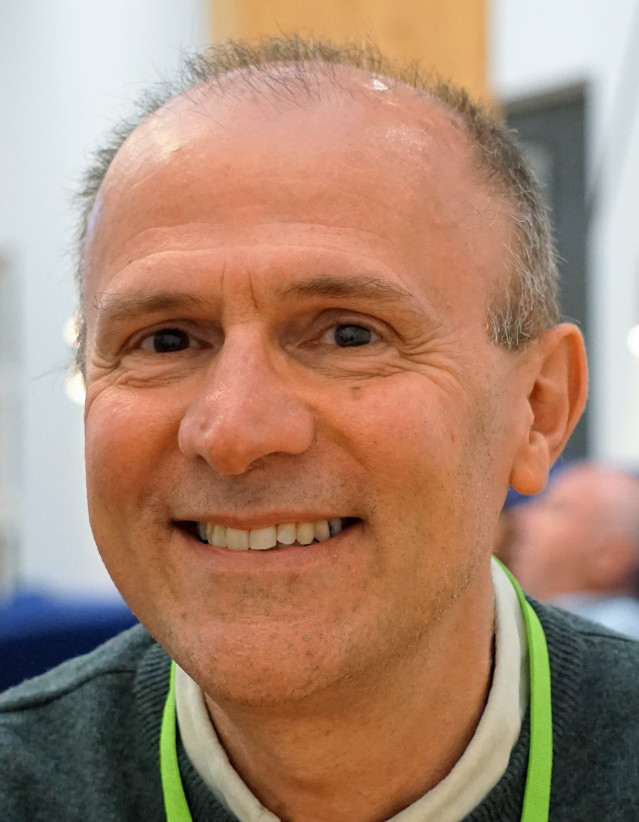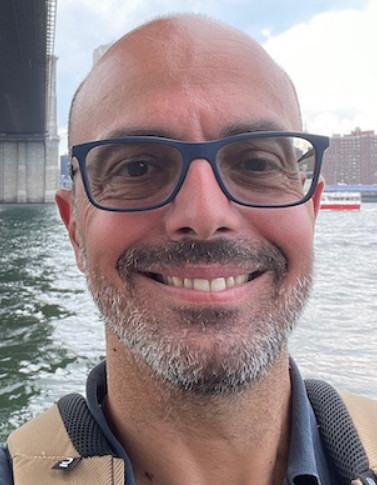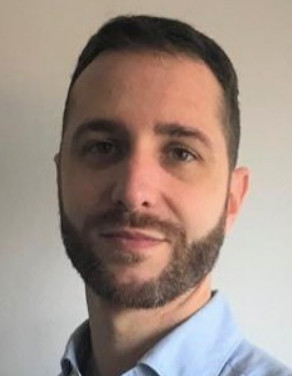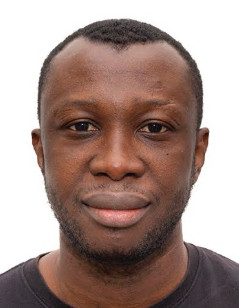Description
ON FIELD OPERATIONS
- Livestock monitoring
- Micro-climate monitoring
- Infections & Disease Monitoring
- Ground Mapping & Sensors
- Productivity Maps
- Agri-robots & drones
- Animal attack protection
- Disease detection
- Plant nutrient control
- Robotic harvesting
- Growth and stress level monitoring
FARM OPERATIONS
- Predictive maintenance for machinery
- Production Automation
- Production Management
- Plant integration
- Acquaculture
- Underwater agriculture
SUPPLY CHAIN and SALES
- B2B, B2C, B2B2B
- Waste recovery and management
- Identification and tracking
- Productivity monitoring
- Fleet Management
- Order Management
- Logistic Management
- Distributed Ledger Technologies
DATA and COMMUNICATIONS
- Data platforms
- Data spaces
- Analytics for agriculture
- Big Data for agriculture
- Machine Learning for Agriculture
- Edge computing in agriculture
- Underground communications
- Wireless Sensors and Actuator Networks
CONSUMER and SOCIETAL IMPACT
- Smart tags
- Meal kits
- Autenticity solutions
- Society 5.0
- Agriculture and Climate Change
Chair
Stefano Giordano
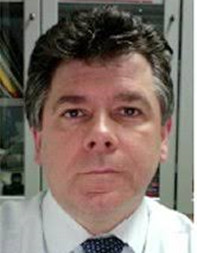
Stefano Giordano is full professor at the Department of Information Engineering of the University of Pisa where he is the responsible of the Telecommunication Networks Laboratories giving lectures both at the University of Pisa and the Italian Navy Academy. He is senior member of the IEEE Comsoc and was Chair of the Communication Systems Integration and Modelling (CSIM) Technical Committee. He is member of IFIP WG 6.3 (Performance Evaluation of Communication Systems) and of the ISOC (Internet Society) since its foundation in 1992. He is member of CNIT (the Italian National Consortium for Telecommunications) and of the GTTI (Group for Telecommunications and Information Theory). He was member of the board of governors of the italian Chapter of ISOC and of the CQR and TACTILE INTERNET TC. He founded with Juniper Networks the first European Juniper Networks Higher Learning Center. He was/is reviewer of the NSF in USA, of the EU, of the Italian Ministry of Economic Development, of Italian Ministry of Research (member of the “albo” of experts of the Ministry of Economic Development). He is author of more that 300 papers on peer reviewed international conferences and journals on the practical and theoretical aspect of modern networking including SDN, NFV and IoT. He was the responsible for the participation of the University of Pisa to the Euro-NGI (Next Generation Internet in Europe) Network of Excellence. He is member of the PhD council on Information Engineering of Univ of Pisa. He was member of the spin-off committee of the University of Pisa. From the research activities of his group two spin-off companies (Nextworks and Netresults) were created. He was co-founder of the CUBIT consortium where he is now President of the board.
Speakers
Prof. Janise Mc Nair, University of Florida, USA
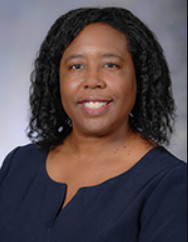
Dr. Janise McNair is an associate professor of electrical & computer engineering (ECE) at the University of Florida. She earned her B.S. and M.S. degrees from the University of Texas at Austin and her Ph.D. degree in ECE from the Georgia Institute of Technology, with a research focus on medium access control and mobility management in next generation wireless networks. She directs the Wireless And Mobile (WAM) Systems Lab, which performs research in the field of wireless networks and Internet of Things applications, creating frameworks for integrating IoT with 5G and 6G cellular systems. In her current research, she applies software-defined network (SDN) and machine learning principles to create adaptive telecommunications infrastructures for physical systems, including agriculture, remote construction sites, and smart grid. She is a member of the Intelligence, Science and Technology Experts Group of the National Academies of Sciences Engineering and Medicine, the Integrity Committee of the IEEE Computer society, and was a participant in the 2008 DARPA Computer Science Study Group. She also serves on the organizing committees of IEEE ICC 2024 and ACM CoNEXT 2022, and on the editorial boards of Nature Communications Engineering and Springer Wireless Networks Journal.
Title
Creating Access and Opportunity
Abstract
The safe cultivation, transportation and delivery of food is a growing concern for modern society. Climate uncertainty, volatility of markets, and the need to meet the food production requirements of a rising global population is increasing the need for comprehensive data collection, increased access to data as well as a more complex fusion and analysis of data. In the agricultural sector, the world is turning to IoT, combined with data analytics, to address the growing concerns of the food supply’s quantity and quality. An IoT evolution is happening within the agricultural sector, including wireless sensor networks, radio frequency (RF) identification, cloud computing, middleware systems, and end-user applications. Despite these recent technological breakthroughs, adoption of new technologies has lagged due to fragmented solutions, interoperability issues, lack of trust in data exchange, and barriers from lack of multi-disciplinarity approaches. The current process of collecting, storing, analyzing, and distributing data and information to support decision making in agricultural operations remains fragmented or inaccessible to too many stakeholders. In addition, the efficient use of IoT depends on the Internet infrastructure, and this presents several shortcomings, especially when dealing with rural and remote locations, large numbers of network devices and/or integrating devices with other, legacy systems. In this talk, Dr. McNair discusses the current state of IoT Agriculture research as well as the access and integration needs for various stakeholders, and what technological next steps are needed to form a bridge between the two communities.
——————————————————-
Prof. Gianluca Brunori, University of Pisa, Italy
Manlio Bacco received a PhD degree in information engineering and science from the University of Siena, Italy, in 2016. He works as a Researcher in the Institute of Science and Information Technologies (ISTI), National Research Council (CNR), Pisa, Italy, since 2012. He has been actively participating in European-funded, national-funded, and ESA-funded research and development projects. His research interests include wireless communications, aerospace and IoT scenarios, cyber-physical systems, and the use of digital technologies in agriculture, forestry, and rural areas.
Title
Co-design of Technological Solutions for Agriculture and Rural Areas: methodology and cases for responsible innovation
Abstract
——————————————————-
Ing. Tommaso Gualtieri, QB Robotics, Italy
Tommaso Gualtieri has a Master degree in Business Administration from the University of Pisa. In the last fifteen years he has held top management positions in small, medium and large companies. Specialized in business development and management of foreign markets, in addition to the role of General Manager for qbrobotics® he is leading Marketing and Sales.
Title
SOFT-ROBOTICS IN SMART AGRICOLTURE
Abstract
Increasingly, crops are being grown in closed, structured environments to avoid wasting energy, soil and water. These closed, high-energy, hot, and high-humidity environments will require sensors and vision systems that will be interconnected and controlled by artificial intelligence, which, once the information is processed, will promptly instruct robotic systems that operate autonomously 24 hours a day.
——————————————————-
Ing. Matteo Grandi, NEUTROON, Spain
Matteo Grandi is a business developer, tech analyst, project manager, and MBA executive currently leading the development of a fast-growing, innovative start-up based in Spain and quickly expanding through Europe and the United States. Matteo obtained his MSc in Telecommunication Engineering from the University of Pisa (Italy), performing the Master Thesis at the I2CAT Research Center of Barcelona (Spain) and the Polytechnic University of Catalonia (Spain). Matteo worked as Researcher in the field of advanced wireless communications and mesh networking, and then as Innovation Manager for an important provider of solutions for Industry4.0 before joining the newly founded Neutroon Technologies, which business idea has been partially developed in his master thesis. To complement the technical background, Matteo enrolled in an MBA focused on business innovation
Title
5G enabled Business Cases in the Agronomic Sector
Abstract
Agriculture contributed to 4.3% of the World’s GDP in 2021 (source: World Bank), a number that might seem smaller in comparison to other sectors, but that includes all the needs this sector has for technological advancement aimed at increasing the efficiency, productivity, and sustainability of the business. For certain aspects, the challenges faced by the agriculture industry are not so different from what the manufacturing and process industry are overcoming every year. In such cases, technological solutions and communications technologies designed to serve Industry 4.0 applications, can be easily adapted to be applied to the agriculture. In this session, some real-life Business Cases where technical challenges have been solved deploying private 5G networks, are presented, analyzing the commonalities and pros/cons of alternative approaches.
——————————————————-
Dr. Mike Ojo, Texas A&M AgriLife Research Dallas, USA
Mike Ojo received the M.Sc degree in Telecommunications Engineering from Politecnico di Milano, Milan, Italy in 2014, and a Ph.D degree in Information Engineering from the University of Pisa, Pisa, Italy in 2019. Previously, he was a Visiting Research Scholar and a Postdoctoral Associate with the University of Turin, Italy. He is currently a Postdoctoral Research Fellow with the Texas A&M AgriLife Research, USA. His research interests include design, optimization, and performance evaluation of Internet of things networks, low power wide area networks, software-defined networking, edge computing, AI with an emphasis on smart agriculture. He is a member of IEEE and has served as a reviewer for several IEEE conferences and journals as well as MDPI, and Elsevier journals.
Title
Sensing, AI, and Automation for Controlled Environment Agriculture : A Use Case
Abstract
Controlled environment agriculture (CEA), including greenhouses, vertical farms (vertical or horizontal plane), and plant factories, is increasingly considered an important strategy to address global food challenges. CEA adds precision to production that will not only reduce input costs and crop losses but also post-harvest waste. The applications of this production method are limitless and evolving rapidly. Artificial intelligence, automation, and institutional research data will play an important role in this evolution of food production capability. Despite the benefits, the CEA industry struggles to achieve economic sustainability due to inefficient microclimate and rootzone-environment controls and high costs. In this talk, we focus on the challenges of CEA, as well as introducing innovative applications in the CEA.
——————————————————-


